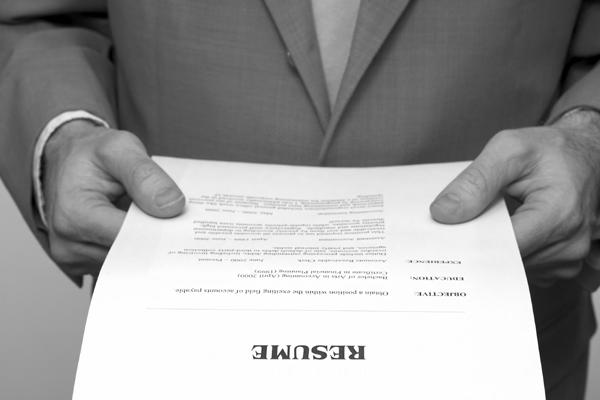According to the Office of Personnel Management, 60% of federal workers will be retiring in the next 10 years. There is plenty of opportunity, but job seekers need to remember that the process for landing a job with the federal government is radically different than what they may be used to in the private sector.
We've compiled six common myths that job seekers believe when going for that government job, based on calls and emails to the USAJOBS customer support team and feedback from federal recruiters.
Myth 1: 'By Enrolling in a Federal Jobs Seminar or Buying Federal Job Listings, I'll Pave My Path to Working for the Feds'
Many federal job seekers are victimized each year by scam artists selling information about federal job opportunities or offering "preparation courses" for the civil service exam. Some companies go so far as to use names that imply affiliation with the federal government, such as the "US Agency for Career Advancement" or "Postal Employment Service." Often job seekers are not even aware they have been scammed until they contact USAJOBS.
Information on job vacancies with the federal government and postal service is always provided free of charge. The commonly known civil service exam was discontinued in the 1980s and replaced policies that allow federal agencies to conduct their own candidate review processes; such information is contained in each job announcement. You should never pay for any service related to federal job openings or federal employment information.
All competitive civil service positions open in the federal government are required to be posted on USAJOBS, where you can search the jobs database, create a federal resume and obtain information about federal employment.
Myth 2: 'I Can Breeze Through These Screening Questions'
The federal government's hiring process is highly regulated to ensure fairness. When you apply for a job, you should expect the agency will ask you to answer some hard essay questions in your application. How you respond will significantly impact your candidacy.
Job announcements on USAJOBS include screening questions in the "How You Will Be Evaluated" section. Review and prepare with these questions to make the application process easier. Remember: Your responses should be concrete and tailored to the announcement's wording. Federal agencies often evaluate a candidate's relevant experience based specifically on matching keywords in the job announcement to keywords in the candidate's resume and essay. For example, don't assume they will deduce you have experience answering phones by simply saying you worked in customer service; instead explicitly state that you have answered phones in your past positions.
Myth 3: 'The Feds Can Translate My Private Sector Resume into Their Format'
The federal government requires a lot of information not typical to the private sector. For example, job seekers must provide their Social Security number when applying for jobs. Job announcements also may call for you to provide your country of citizenship, exact number of hours worked per week at previous jobs, and the name and phone number of your most recent supervisor.
Rather than trying to edit your existing private-sector resume, you can create a resume with the USAJOBS resume builder, incorporating all the information federal agencies require, and tailor it to specific positions.
Myth 4: 'I Don't Need to Mail/Fax in Those Forms'
Federal positions often require additional documentation beyond your resume as part of the application package, including college transcripts; Knowledge, Skills and Abilities (KSA) statements; and official federal forms.
Look in the announcement's "How to Apply" section to ensure you're submitting all required documentation. Be sure to send in all additional materials before the closing date. Typically, additional materials must be mailed or faxed to the address or number listed in the announcement.
Myth 5: 'My Application Disappeared into the Black Hole of Government'
The federal government has a target of 45 days to hire, but it can take up to six months before they actually hire someone. In most cases, you will need to be patient. Many job seekers assume they have not been selected and delete or dispose of their federal application package. As a result, when they are contacted by an agency, they are completely unprepared for the next hiring steps.
Print full copies of all federal job postings to which you apply and make copies of all additional documents you submitted. Keep all materials for each job posting together, along with the date you applied. Don't mix materials for different applications. Store your application packages in one place where you can easily access them. This kind of organized record-keeping will ensure you are fully prepared when you get the call.
If you apply to a position using your USAJOBS resume, a record of and link to the original job posting is stored in your account.
Myth 6: 'The Recruiter Will Figure Out if I'm Qualified'
You need to demonstrate that you are qualified for the position. Read the job announcement carefully, noting keywords, deadlines and required materials. Pay close attention to how application materials should be submitted; this varies from agency to agency. Just because an agency allows a candidate to submit a resume via USAJOBS, it does not mean that completes the initial application process.
The application process to get a job with the federal government is much better than it was a few years ago, and with a little persistence and knowing the truth behind these myths, you can find a rewarding government career that serves the public good.
Find the Right Veteran Job
Whether you want to polish your resume, find veteran job fairs in your area or connect with employers looking to hire veterans, Military.com can help. Subscribe to Military.com to have job postings, guides and advice, and more delivered directly to your inbox.











